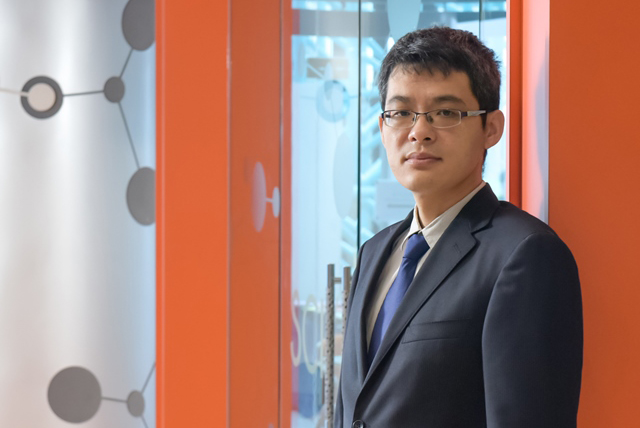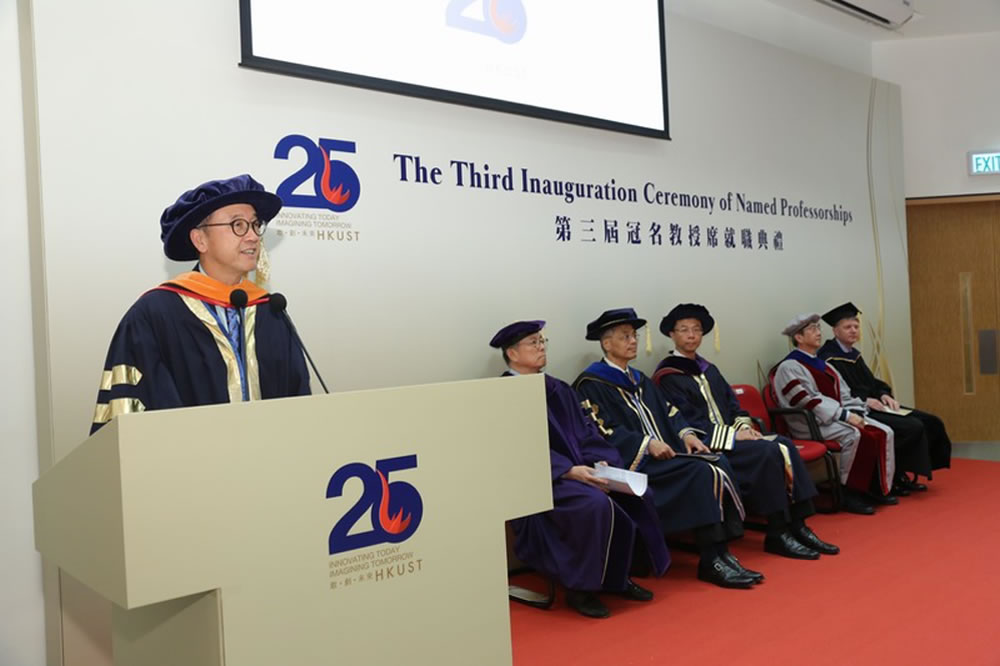Division of Life Science
Department of Chemical and Biological Engineering
For centuries, mathematics and biomedicine were believed to have little in common. Yet with the advent of next-generation sequencing and enormous advances in computing power, scientists have begun to harness the power of big data for medical progress. It is at the pivotal intersection between mathematics and biology that Professor Jiguang Wang, HKUST’s Padma Harilela Associate Professor of Life Science, is blazing a trail for biomedicine and bringing new hope to patients with some of the world’s deadliest diseases.
Almost 10 years’ intensive training in applied mathematics—a Bachelor’s degree at the Beijing Institute of Technology followed by a Master’s-cum-Ph.D. at the Academy of Mathematics and Systems Science of the Chinese Academy of Sciences—showed Professor Wang the potential of mathematical tools to answer long-term, real-world questions about human biology and disease. During his postdoctoral research at Columbia University, he was named Irving Institute Precision Medicine Fellow for his use of computational methods to map cancer evolution and the noncoding genome.
This set the stage for further breakthroughs. After joining HKUST in 2016, this exceptional young scientist turned his attention to one of the world’s rarest and most aggressive diseases—a type of brain cancer known as glioblastoma. By mining dozens of terabytes of next generation sequencing data, he and his team, collaborating with Beijing Tiantan Hospital, Capital Medical University, were able to identify patterns in how cancer cells respond to therapy and identify a novel, non-invasive treatment option for patients with little hope of a cure.
Headed by Professor Wang, the Wang Genomics Laboratory at the University has since joined hands with local and international partners to tackle the disease from different angles. “If we can understand the mutation mechanism,” says Professor Wang, “people will have some chance of being treated.” Already, the novel gene-based treatment suggested by the team has benefited several patients, and a clinical trial of a promising new drug is underway.
These outstanding achievements, advancing our knowledge of complex human diseases in a new era of genomic medicine, have gained Professor Wang global recognition. As well as winning some of China’s most prestigious awards for science and innovation, he has published more than 30 papers in leading journals, including Cell and Nature. Inspired by his able teaching, numerous postgraduate and postdoctoral students at HKUST have gone on to become award-winning scientists.
Honors and recognition aside, Professor Wang is clear-sighted in his purpose: to mitigate the human cost of disease by bringing hope to patients. “I just try to do whatever I think is important to society and for human health,” he says.

 |













